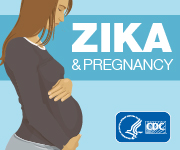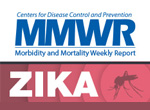Tackling an Invasive, Emerging, Multi-drug Resistant Yeast: Candida auris — What Healthcare Providers Need to Know
Date:Tuesday, August 15, 2017
Time: 2:00-3:00 pm (Eastern Time)
Overview
Candida auris, an emerging multidrug resistant fungus that can cause invasive infections with high mortality, has been associated with outbreaks in healthcare settings. C. auris was first described in 2009, after being isolated from external ear canal discharge of a patient in Japan. Since then, reports of C. auris infections, including bloodstream infections, have been noted from over a dozen countries—and it has now been found in the United States. As of July 14, 2017, 98 cases have been reported to CDC.
The emergence of C. auris raises several serious concerns for public health. First, many isolates are multidrug-resistant, with some strains having elevated minimum inhibitory concentrations to drugs in all three major classes of antifungal medications, a feature not found in other clinically relevant Candida species. Second, C. auris is challenging to identify, requiring specialized methods like MALDI-TOF or ribosomal DNA sequencing. When using common biochemical methods such as analytical profile index strips or the VITEK 2, C. auris is often misidentified as other yeasts (most commonly Candida haemulonii, but also Candida famata, Rhodotorula glutinis). Finally, C. auris has caused outbreaks in health care settings, spreading from patient to patient, and contaminating healthcare environments. During this COCA call, clinicians will learn about the updated identification, treatment, and infection control recommendtions for C. auris.
Tom Chiller, MD, MPHTM
Chief, Mycotic Diseases Branch
Office of Infectious Disease
National Center for Emerging & Zoonotic Infectious Diseases
Centers for Disease Control and Prevention
At the conclusion of the session, the participant will be able to accomplish the following:
- Describe the epidemiology of C. auris.
- Explain the guidance for diagnosis and treatment of C. auris.
- Explain the infection control recommendations for containing C. auris.
- Slides: View Now
- Audio: Listen Now
- Webcast: Watch Now
- Transcript: Read Now
- Audio conference call on Wednesday, 08/15/17: 2:00 - 3:00 PM (Eastern Time)
- Web-on-demand training after 3:00 PM on 08/15/17
- Materials: PowerPoint slide set
- Candida auris
- Recommendations for Identification of Candida auris
- Recommendations for Treatment of Candida auris
- Recommendations for Infection Control of Candid auris
- MMWR Notes from the Field: Ongoing Transmission of Candida auris in Health Care Facilities — United States, June 2016–May 2017
- Think Fungus: Fungal Disease Awareness Week
- Clinical Alert to U.S. Healthcare Facilities—June 2016
Accreditation Statements
Continuing Education
- Activity number:WCWD2286(SC)
- Date of origination:December 12, 2013
- Date of renewal:December 12, 2015
- Date of expiration:December 12, 2017
- Prerequisites:None
- To earn continuing education/contact hours
Target Audience
- Physicians
- Nurses
- Pharmacists
- Veterinarians
- Physician Assistants
- Health Educators
- Other Clinicians
Hardware/Software
Additional Information
- Contact Information:coca@cdc.gov
- Support/Funding:Centers for Disease Control and Prevention, Emergency Risk Communications Branch
- Method of Participation:You may participate in the educational activity by viewing the program information above.
- Fees:COCA continuing education credits are free.
Accreditation Statements
CME:The Centers for Disease Control and Prevention is accredited by the Accreditation Council for Continuing Medical Education (ACCME®) to provide continuing medical education for physicians.
The Centers for Disease Control and Prevention designates this live activity for a maximum of 1.0 AMA PRA Category 1 Credit™. Physicians should only claim credit commensurate with the extent of their participation in the activity.
CNE:The Centers for Disease Control and Prevention is accredited as a provider of Continuing Nursing Education by the American Nurses Credentialing Center's Commission on Accreditation.
This activity provides 1.0 contact hour.
IACET CEU:The Centers for Disease Control and Prevention is authorized by IACET to offer 0.1 CEU's for this program.
CECH:Sponsored by the Centers for Disease Control and Prevention, a designated provider of continuing education contact hours (CECH) in health education by the National Commission for Health Education Credentialing, Inc. This program is designed for Certified Health Education Specialists (CHES) and/or Master Certified Health Education Specialists (MCHES) to receive up to 1.0 total Category I continuing education contact hours. Maximum advanced level continuing education contact hours available are 0. CDC provider number 98614.

CPE:The Centers for Disease Control and Prevention is accredited by the Accreditation Council for Pharmacy Education as a provider of continuing pharmacy education. This program is a designated event for pharmacists to receive 0.1 CEUs in pharmacy education. The Universal Activity Number is 0387-0000-17-195-L04-P and enduring 0387-0000-17-195-H04-P course category.Course Category: This activity has been designated as knowledge-based.
Once credit is claimed, an unofficial statement of credit is immediately available on TCEOnline. Official credit will be uploaded within 60 days on the NABP/CPE Monitor.
AAVSB/RACE:This program was reviewed and approved by the AAVSB RACE program for 1.0 hours of continuing education in the jurisdictions which recognize AAVSB RACE approval. Please contact the AAVSB RACE Program at race@aavsb.org if you have any comments/concerns regarding this program’s validity or relevancy to the veterinary profession.
CPH: The Centers for Disease Control and Prevention is a pre-approved provider of Certified in Public Health (CPH) recertification credits and is authorized to offer 1 CPH recertification credit for this program.
CDC is an approved provider of CPH Recertification Credits by the National Board of Public Health Examiners. Effective October 1, 2013, the National Board of Public Health Examiners (NBPHE) accepts continuing education units (CEU) for CPH recertification credits from CDC. Please select CEU as your choice for continuing education when registering for a course on TCEOnline. Learners seeking CPH should use the guidelines provided by the NBPHE for calculating recertification credits. For assistance please contact NBPHE at http://www.NBPHE.org.
There is no cost for this program.
DISCLOSURE: In compliance with continuing education requirements, CDC, our planners, our presenters, and their spouses/partners wish to disclose they have no financial interests or other relationships with the manufacturers of commercial products, suppliers of commercial services, or commercial supporters. Planners have reviewed content to ensure there is no bias.
CDC does not accept commercial support.
- Page last reviewed: August 3, 2017
- Page last updated: November 7, 2017
- Content source:
- Maintained By:





 ShareCompartir
ShareCompartir
 =
=